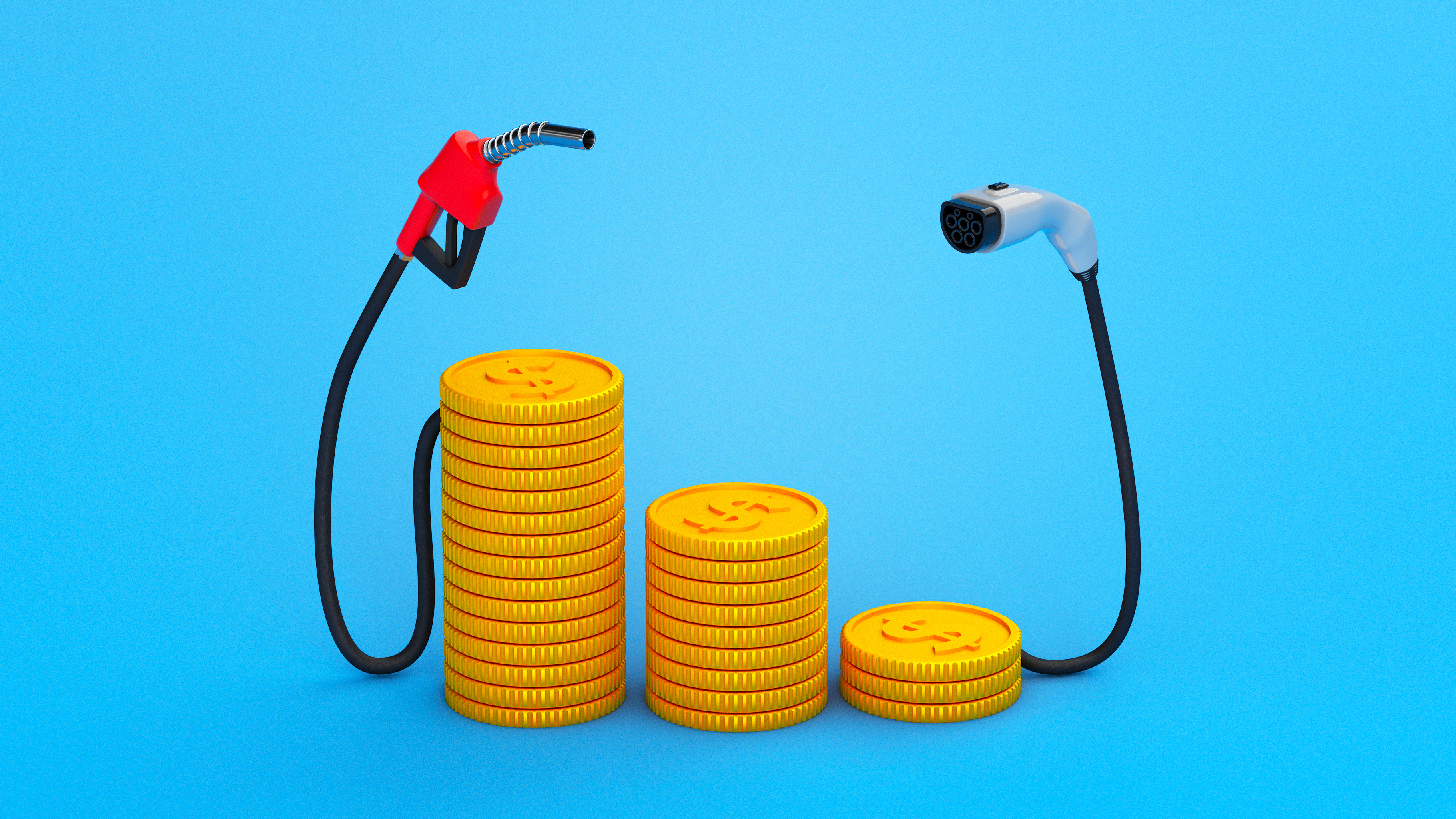Where can you put your cash besides a bank account?
From money market accounts to U.S. government securities, there are a variety of ways you can store your savings


A free daily email with the biggest news stories of the day – and the best features from TheWeek.com
You are now subscribed
Your newsletter sign-up was successful

The recent banking crisis may have you wondering whether your money is in good hands. While bank accounts certainly are still safe — deposit insurance covers up to $250,000 per depositor, per ownership category at each institution — that doesn't mean they're the only spot to stash your cash.
Alternatives to traditional savings accounts might be especially worth considering if you have funds in excess of the amount covered by FDIC insurance (or NCUA insurance, if your money is at a credit union), or if you're hoping to earn slightly better returns. Plus, "the insurance limit has not changed since 2008 and is not indexed to inflation," Kiplinger points out.
If you're interested in expanding your horizons, here are five alternatives to savings accounts.
The Week
Escape your echo chamber. Get the facts behind the news, plus analysis from multiple perspectives.

Sign up for The Week's Free Newsletters
From our morning news briefing to a weekly Good News Newsletter, get the best of The Week delivered directly to your inbox.
From our morning news briefing to a weekly Good News Newsletter, get the best of The Week delivered directly to your inbox.
Money market accounts
Money market accounts are "hybrids between checking and savings accounts," The Balance explains. They are insured by the FDIC (or NCUA), and while you can write checks from them, there are limits on the number of withdrawals, account transfers, check payments or other actions you're allowed to make each month before incurring a penalty; usually you're capped at between five and 10 transactions per month, according to Investopedia. There might also be a minimum monthly deposit requirement to meet.
Money market accounts typically offer somewhat higher interest rates than those of checking or savings accounts. As an example, a "bank offering only a 0.10 percent interest rate on standard savings accounts, for example, might offer a 0.25 percent interest rate on a money market account," Investopedia says. Of course, rates will vary from bank to bank and depending on the overall rate environment.
Certificates of deposit (CDs)
With a certificate of deposit, or CD, you'll need to commit to locking up your money for a certain period of time, and withdrawals made before that period expires will incur a penalty. But in exchange, you can earn a fixed amount of interest that's slightly higher than that of a savings account. And the "longer the term that customers are willing to have their money tied up, the higher the interest rate available," Investopedia says. In some cases, however, lenders might "offer shorter-term promotional CDs that come with higher rates," The Balance adds.
Terms on CDs can range anywhere from a few months to five or even 10 years, per The Balance. You'll need to make an initial minimum deposit when you open a CD and choose your term. Like checking and savings accounts, CDs carry deposit insurance.
A free daily email with the biggest news stories of the day – and the best features from TheWeek.com
When you apply via our links we may earn an affiliate commission
U.S. government securities
U.S. government securities include U.S. Treasury notes, bills and bonds. These investments "have historically been considered extremely safe because the U.S. government has never defaulted on its debt," according to Investopedia. They also generally pay higher interest rates compared to savings accounts, though the exact rate you can earn will depend on the security's term (and selling before a security reaches maturity means losing money).
Treasury bills, or T-bills, are short-term debt obligations that typically mature within a year or less, whereas U.S. Treasury bonds take 20 to 30 years to reach maturity, which means they also pay the highest interest rates, per Investopedia. Treasury notes, meanwhile, can have terms ranging from two years to 10 years. As such, they don't offer as high of returns as Treasury bonds, though they "also generate a payment for investors twice a year," Investopedia says.
Money market mutual funds
Distinct from money market accounts are money market mutual funds. These funds invest in U.S. Treasuries and "other high-quality fixed income securities," including municipal securities, says Kiplinger. They do not carry FDIC insurance.
The yields offered by money market funds move with the market, and they're generally "competitive," Kiplinger says. As for the risk involved, although funds aim to keep their share price fixed at $1, share prices have been known to drop below that level in the past. Keep in mind that "in times of stress, funds can institute gates on withdrawals to help preserve share value," Kiplinger cautions.
Short-term bond funds
With short-term bond funds, you're investing "primarily in corporate and other investment-grade U.S. fixed-income issues and have durations of one to 3.5 years," explains U.S. News & World Report. Though there is greater risk involved here than, say, an FDIC-insured bank account, the "short maturities mean that there's limited impact to the fund price when interest rates change, and the yield generated by the fund generally tracks changes in interest rates," Kiplinger explains. As such, short-term bond funds are "relatively safe."
Becca Stanek has worked as an editor and writer in the personal finance space since 2017. She has previously served as the managing editor for investing and savings content at LendingTree, an editor at SmartAsset and a staff writer for The Week. This article is in part based on information first published on The Week's sister site, Kiplinger.com.
New Tax Rules for 2023: Download your free issue of The Kiplinger Tax Letter today. No information is required from you.
Becca Stanek has worked as an editor and writer in the personal finance space since 2017. She previously served as a deputy editor and later a managing editor overseeing investing and savings content at LendingTree and as an editor at the financial startup SmartAsset, where she focused on retirement- and financial-adviser-related content. Before that, Becca was a staff writer at The Week, primarily contributing to Speed Reads.
-
 Hotel Sacher Wien: Vienna’s grandest hotel is fit for royalty
Hotel Sacher Wien: Vienna’s grandest hotel is fit for royaltyThe Week Recommends The five-star birthplace of the famous Sachertorte chocolate cake is celebrating its 150th anniversary
-
 Where to begin with Portuguese wines
Where to begin with Portuguese winesThe Week Recommends Indulge in some delicious blends to celebrate the end of Dry January
-
 Climate change has reduced US salaries
Climate change has reduced US salariesUnder the radar Elevated temperatures are capable of affecting the entire economy
-
 How your household budget could look in 2026
How your household budget could look in 2026The Explainer The government is trying to balance the nation’s books but energy bills and the cost of food could impact your finances
-
 What is a bubble? Understanding the financial term.
What is a bubble? Understanding the financial term.the explainer An AI bubble burst could be looming
-
 The FIRE movement catches on as people want to retire early
The FIRE movement catches on as people want to retire earlyIn the spotlight Many are taking steps to leave the workforce sooner than usual
-
 Who wants to be a millionaire? The dark side of lottery wins
Who wants to be a millionaire? The dark side of lottery winsIn The Spotlight Is hitting the jackpot a dream come true or actually a nightmare?
-
 How can you find a financial adviser you trust?
How can you find a financial adviser you trust?the explainer Four ways to detect professionals who will act in your best interest
-
 What should you consider when choosing a financial adviser?
What should you consider when choosing a financial adviser?The Explainer The right person can be a big help with financial planning, investing, taxes and more
-
 What Biden's IRA means for EV tax credits: 2024 updates
What Biden's IRA means for EV tax credits: 2024 updatesThe Explainer Which cars are eligible and how much money can owners save?
-
 How to ensure you don't outlive your retirement savings
How to ensure you don't outlive your retirement savingsThe Explainer Your golden years should be enjoyed. Don't let finances get in the way.
